A partition divides a container having insulated walls into two compartments I and II. The same gas fills the two compartment. What is the ratio of the number of molecules in compartments I and II ?
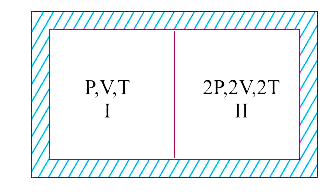
n=pVkT, n'=2p2VkT
n/n'=14
Topper's Solved these Questions
- KINETIC THEORY OF GASESBook:CBSE COMPLEMENTARY MATERIALChapter:KINETIC THEORY OF GASESExercise:Long answer type question
Explore 4 Videos
- KINETIC THEORY OF GASESBook:CBSE COMPLEMENTARY MATERIALChapter:KINETIC THEORY OF GASESExercise:Numerical
Explore 7 Videos
- KINETIC THEORY OF GASESBook:CBSE COMPLEMENTARY MATERIALChapter:KINETIC THEORY OF GASESExercise:Objective question
Explore 20 Videos
- KINEMATICSBook:CBSE COMPLEMENTARY MATERIALChapter:KINEMATICSExercise:M.C.Q.
Explore 20 Videos
- MECHANICAL WAVESBook:CBSE COMPLEMENTARY MATERIALChapter:MECHANICAL WAVESExercise:MCQ
Explore 20 Videos
Similar Questions
A partition divides a container having insulated walls into two compartments whose initial paraments are given. The partition is a conducting wall which can move freely without friction. Which of the following statements is/are correct, with reference to the final equilibrium position ?
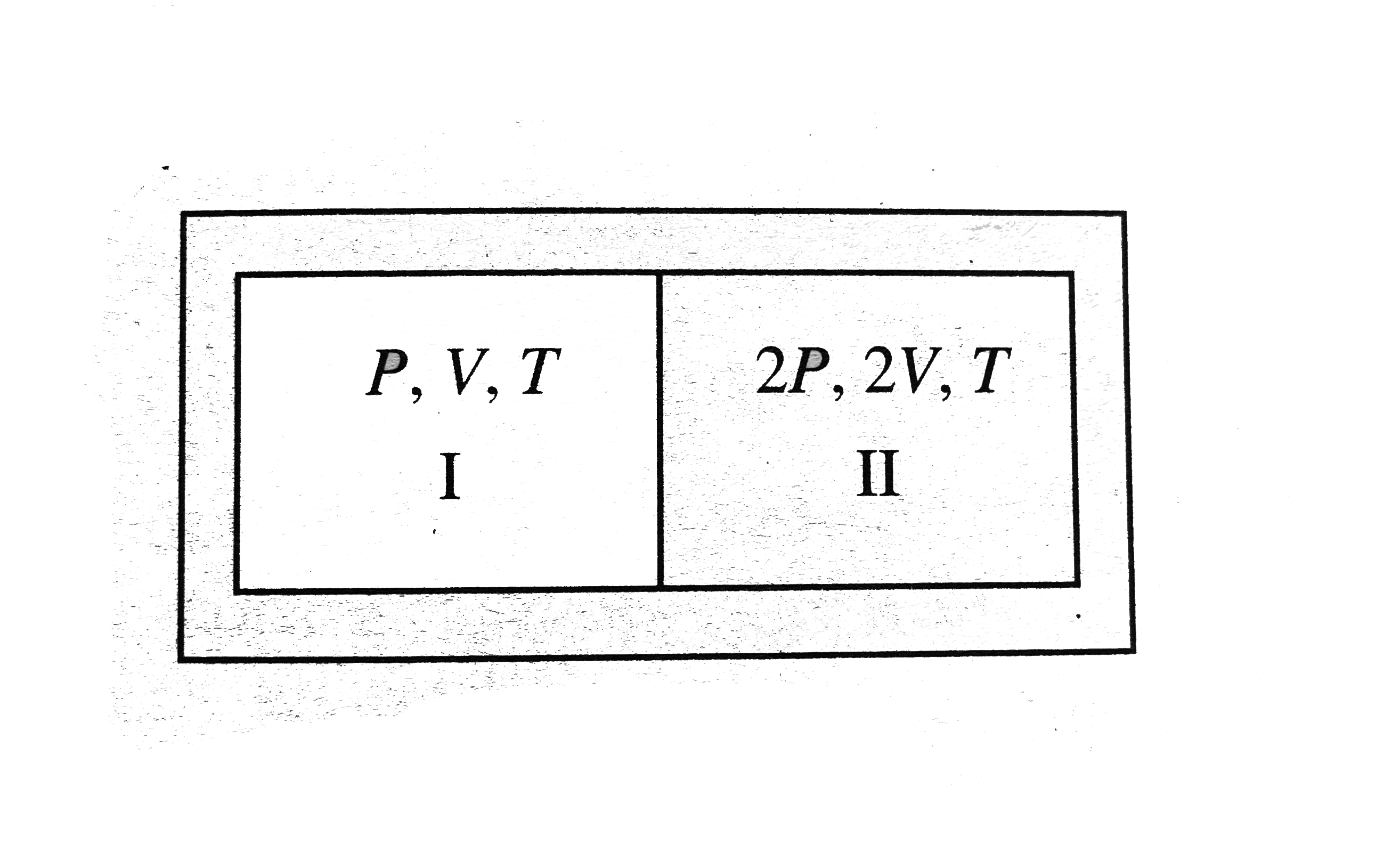
View SolutionA partition divides a container having insulated walls into two compartments whose initial paraments are given. The partition is a conducting wall which can move freely without friction. Which of the following statements is/are correct, with refrence to the final equilibrium position ?

View Solution
Knowledge Check
A partition divides a container having insulated walls into two compartments whose initial paraments are given. The partition is a conducting wall which can move freely without friction. Which of the following statements is/are correct, with refrence to the final equilibrium position ?
 AThe pressure in the two compartments are equal.BVolume of compartment I is 3V/5CVolume of compartment II is 12V/5DFinal pressure in compartment I is 5P/3
AThe pressure in the two compartments are equal.BVolume of compartment I is 3V/5CVolume of compartment II is 12V/5DFinal pressure in compartment I is 5P/3In Fig., a container is shown to have a movable (without friction) piston on top. The container and the piston are all made of perfectly insulating material allowing no heat transfer between outside and inside the container. The container is divided into two compartments by a rigid partition made of a thermally conducting material that allows slow transfer of heat. the lower compartment of the container is filled with 2 moles of an ideal monoatomic gas at 700 K and the upper compartment is filled with 2 moles of an ideal diatomic gas at 400 K. the heat capacities per mole of an ideal monoatomic gas are Cυ=32RandCP=52R, and those for an ideal diatomic gas are Cυe=52RandCP=72R.
Now consider the partition to be free to move without friction so that the pressure of gases in both compartments is the same. the total work done by the gases till the time they achieve equilibrium will be
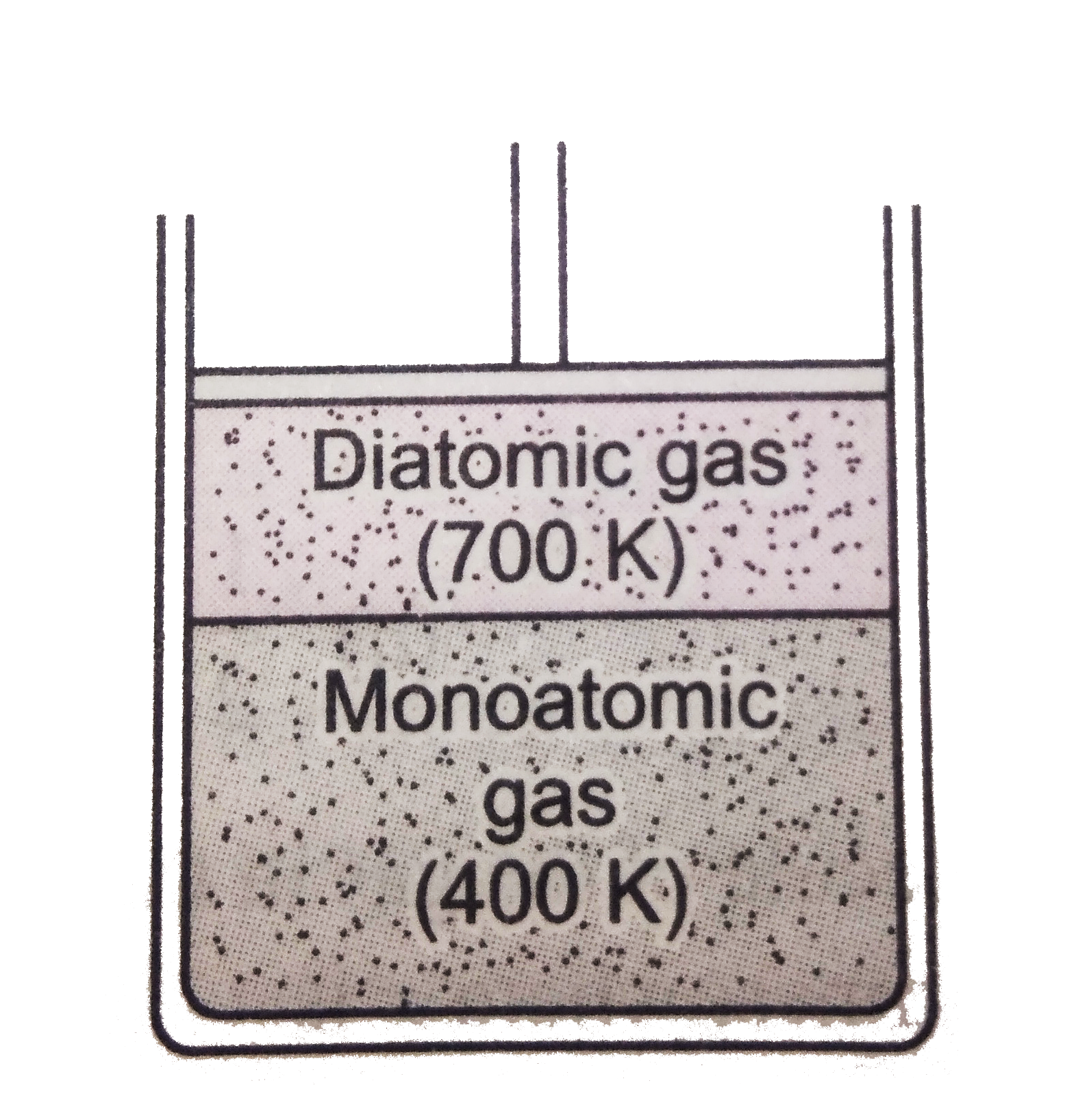 A250 RB200 RC100 RD−100R
A250 RB200 RC100 RD−100RIn the figure, a container is shown to have a movable (without friction) piston on top. The container and the piston are all made of perfectly insulated material allowing no heat transfer between outside and inside the container. The container is divided into two compartments by a rigid partition made of a thermally conducting material that allows slow transfer of heat. The lower compartment of the container is filled with 2 moles of an ideal monatomic gas at 700K and the upper compartment is filled with 2 moles of an ideal diatmoic gas at 400K. The heat capacities per mole of an ideal monatomic gas are CV=32R,CP=52R, and those for an ideal diatomic gas are CV=52R,CP=72R,
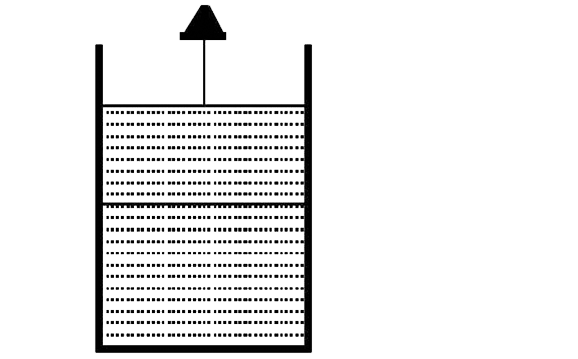
Now consider the partition to be free to move without friction so that the pressure of gasses in both compartments is the same. The total work done by the gases till the time they achives equilibrium will beA−200KB200RC100RD−100R
Mitochondrial membranes divide its lumen into two ____ compartments.
View SolutionMitochondrial membranes divide its lumen into two ____ compartments.
View SolutionA thermally insulated piston divides a nonconducting container in two compartements, right compartement of 2V,T and 2P, while in the left compartement the respective values are V,T and P. Total moles in total system of both comartments is 5 moles. if piston can slide freely, and in the final equilibrium position, volume of right compartement is xV5 then find the value of x.
View SolutionA thermally insulated piston divides a nonconducting container in two compartements, right compartement of 2V,T and 2P, while in the left compartement the respective values are V,T and P. Total moles in total system of both comartments is 5 moles. if piston can slide freely, and in the final equilibrium position, volume of right compartement is xV5 then find the value of x.
View SolutionIn Fig., a container is shown to have a movable (without friction) piston on top. The container and the piston are all made of perfectly insulating material allowing no heat transfer between outside and inside the container. The container is divided into two compartments by a rigid partition made of a thermally conducting material that allows slow transfer of heat. the lower compartment of the container is filled with 2 moles of an ideal monoatomic gas at 700 K and the upper compartment is filled with 2 moles of an ideal diatomic gas at 400 K. the heat capacities per mole of an ideal monoatomic gas are Cυ=32RandCP=52R, and those for an ideal diatomic gas are Cυe=52RandCP=72R.
Consider the partition to be rigidly fixed so that it does not move. when equilibrium is achieved, the final temperature of the gases will be
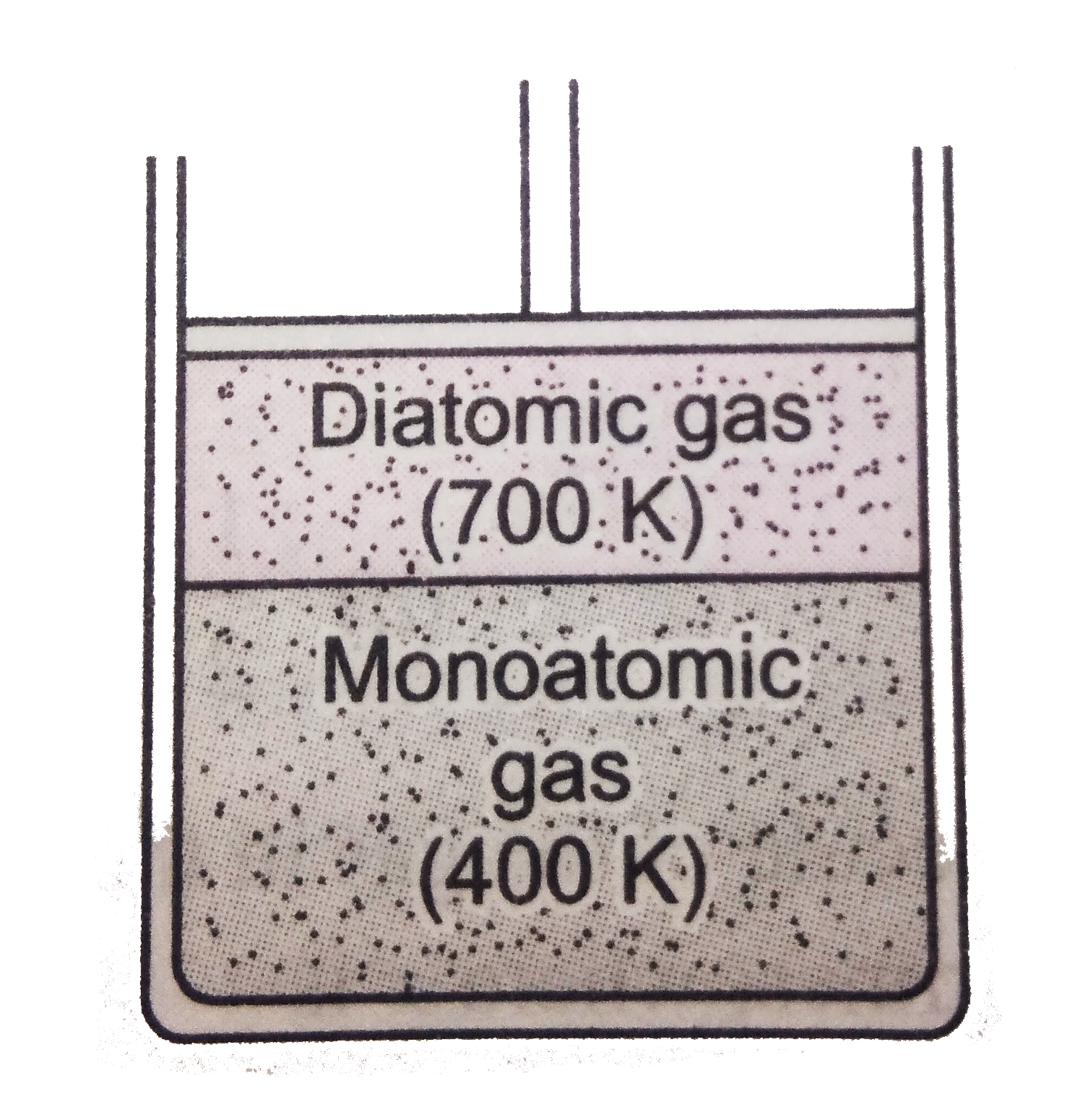
View Solution
